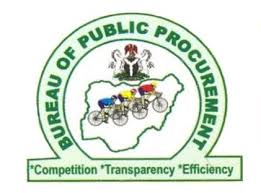Democracy & Governance
States Public Procurement Portals, A Breakthrough To Promote Transparency Turns Devoid -By Muritala Abdullahi
Many states award contracts without providing a channel of tracking, to monitor the processes involved in both payment and execution of projects; these have adversely contributed to frequent increases of shady contracts by contractors and construction companies. Even with the establishment of the Bureau of Public Procurement.

After the realization and enactment of the Procurement Act in 2007 to bridge the thick line of mismanagement of public funds by state governments and its officials to further propel accountability. Some States have set a benchmark of yearly expenditure from the budget on websites for public access. While some failed to comply with the ACT to provide easy accessibility to the procurement details.
State governments must frequently provide their yearly expenses by any means and which technology revolution provides the use of a website and the breakdown of its expenditure totaling in a financial report across all sectors under the State Government can be made available online.
Despite having some funds untraceable which tend to be termed as dividends of Democracy, investigation shows that monthly security votes stand unquestionable for state governments yet many states failed to adhere to this compliance of revealing the documented expenditure in funds allocated to states. In an ICIR investigation that exposed how some states’ websites remained inaccessible and vacuum, the report which captured States with weak and Poor malware websites and some with empty pages and non-functional ULR, lacked the procurement reports and financial expenses, altered and obstructed access to public procurement of the concerned States.
It prevents access to financial information and expenditures allotted to state projects, also repelling the forges of transparency and efficient management of public funds.
Many states award contracts without providing a channel of tracking, to monitor the processes involved in both payment and execution of projects; these have adversely contributed to frequent increases of shady contracts by contractors and construction companies. Even with the establishment of the Bureau of Public Procurement.
The Bureau of Public Procurement is a federal government agency established to sternly facilitate the processes of contract bidding, awarding, execution, tracking, and monitoring, the agency is headed by a Director, who sometimes serves as secretary of the committee formed alongside the minister of finance, minister of justice, Secretary of the federal government, Head of the service, economic advisor to the president, and also a representative from Nigeria Institute for Purchasing and Supply Management, Nigeria Bar Association NBA, Nigeria Association of Chambers of Commerce, Industry, Mines, and Agriculture, Nigeria Society of Engineers, Civil Society, and Media. The president has the power to appoint the chairman and it is usually the minister of finance who holds the position.
However, the feasibility of their process has not been significant in the process as several reports are been done by media outlets exposing the mediocrity in the poorly executed projects which have left the public in anguish, several roads, healthcare facilities, school infrastructures waterworks and lots more have deepened in dismay of odd works done by incapacitated contractors fuelled by several multi- taxations of referral of the working company, which further spike poorly executed or abandoned projects.
Numerous reports have shown multiple awarding of a single contract, this is evident in a report by Premium Times which exposes how a lawmaker inserted a single road project about four times in a row into Nigeria’s budget is a solid example of misappropriation, embezzlement of public funds and a corrupt practice which also dents accountability in Governance. The crisis is bleaker in the case of unreported projects which were assigned but not constructed, tracking such projects is practically impossible. or projects executed without a signpost to uphold the identity of the parties involved in the contracts, from the contracting agency to the monitoring team and also the awarding sector.
Consequently, this has reduced the accountability pursuit of the media as the basic approach to track and monitor capital projects and state schemes is been deterred intentionally to avert and halt beaming light on woes in contracting procedures and implementation. Accountability journalists locate poorly executed projects without billboards or inscriptions and would find it difficult to track such projects due to the unavailability of information about the projects.
Significantly the advent of the Freedom of Information Act (FOI) didn’t rejuvenate the prejudice but only gave a glimpse of change in the stereotypical effect of obstructing information freedom since few of the FOI requests been sent are responded to or attended to. It’s another rendition of concealing information.
Though some innovations of eco-tech have created some platforms archiving the details of government spending relishing the blackened odds of fiscal transparency, platforms like GOV SPEND are abdicating the ripened effect of Accountability.
Summary
The State Public Procurement Portals, aimed at promoting transparency, are failing in their purpose. Despite the Procurement Act of 2007 and the use of websites for public access to expenditure details, some states don’t comply, hindering transparency and accountability. Inaccessible websites, weak cybersecurity, and lack of procurement reports obstruct public scrutiny, allowing undisclosed funds and shady contracts. The Bureau of Public Procurement, though established to oversee processes, faces challenges, leading to poorly executed projects and misappropriation of funds, creating a crisis in governance accountability. The media’s pursuit of accountability is impeded by unreported projects and the intentional lack of information, undermining the impact of the Freedom of Information Act.



















